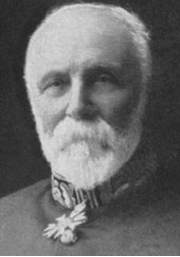On this date in 1844, New Zealand statesman Robert Stout was born in the Shetland Isles, Scotland. He was educated in parish schools, qualified as a student teacher at age 13, then as a surveyor in 1860. Stout emigrated to New Zealand in 1863. After teaching in Dunedin, he studied law and was admitted to the bar in 1871. He served as a member of the Provincial Council of Otago in 1872 and was first elected to the House of Representatives in 1875 as a Liberal. He served as attorney general and minister for lands and immigration in 1878-79.
He became president of the Dunedin Freethought Association in 1880 and defended the Auckland Rationalist Association when it was threatened with prosecution for selling its magazine on Sundays. Stout eventually introduced a bill, which passed, reducing Blue Law fines and restrictions. He was often described as New Zealand’s version of Charles Bradlaugh and America’s Robert Ingersoll. He was returned to Parliament in 1884 and served as premier, attorney general and minister of education from 1884-87. He was knighted in 1886.
Stout promoted secular secondary schools and medical and welfare services and was sympathetic to the Maori and land reform. The Married Women’s Property Act became law while he was prime minister. Stout returned to Parliament in time to finally see passage of women’s suffrage in 1893, a reform he had promoted. He was appointed chief justice, serving from 1899-1926. He was also chancellor of New Zealand University (1903-23).
Stout was appointed after retiring as chief justice to the Legislative Council, where he immediately defended secular education, which was under attack by religionists seeking to introduce bible reading and prayers in school: “I fear that Parliament may set up a little state church to make people morally good. … it will make them immoral, for it will inaugurate bitterness and ill feeling.” He married Anna Paterson Logan, the daughter of social reformers and freethinkers, and they had six children. D. 1930.


